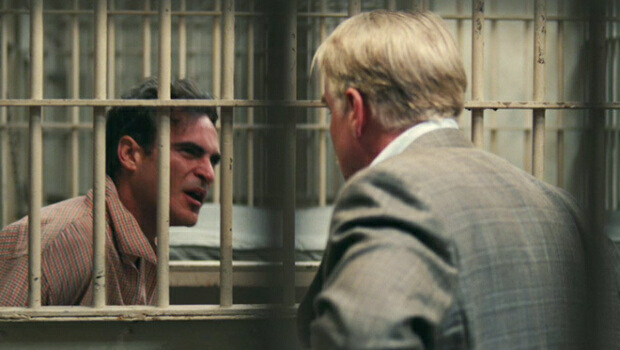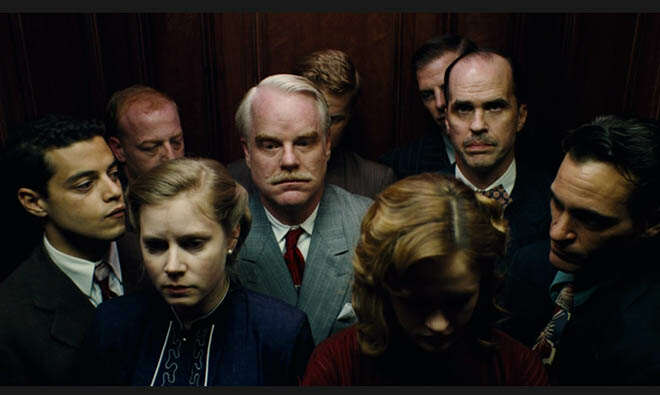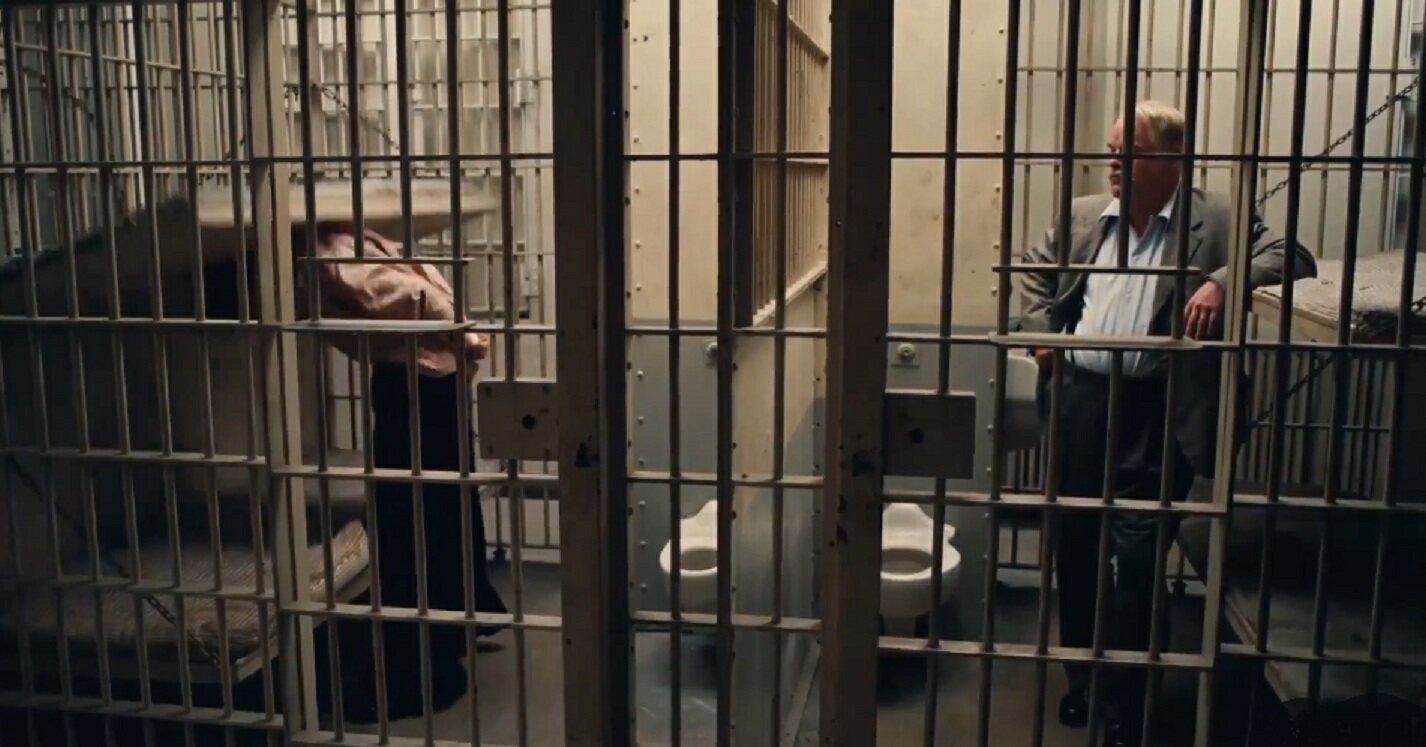The Master


What a difference two letters can make: There are two prominent
directors named Paul Anderson but the quality of their output could not
be more diametrically opposed. Paul W.S Anderson is best known for
directing the Resident Evil series, hollow films full of bombast,
superficiality and nepotism ( The striking Milla Jovovich is his wife)
whilst Paul Thomas Anderson is an Oscar nominated auteur who has such
brilliant pieces of work as There Will Be Blood and Boogie
Nights to his credit. Thankfully The Master is the latest
release from the latter.

The Master
introduces us to WW2 veteran Freddie Quell (A superbly nuanced
performance by Joaquin Phoenix), a violent, sexually obsessed alcoholic
who having difficulty assimilating back into conventional society upon
returning, possibly due to Post Traumatic Stress Disorder but more
likely due to the PTSD exacerbating pre-existing issues that are
explored intermittently throughout the narrative.
Flitting from one menial job to another, Freddie’s volatile anger soon
gets him into a confrontation with his fellow worker, leading to a
chance encounter with the affable Lancaster Dodd (Anderson regular
Philip Seymour Hoffman). Freddie soon discovers that the charismatic
Dodd is the leader of “The Cause”, a philosophical paradigm of Dodd’s
that initially started as a form of therapy before mutating into
something closer resembling a theological cult mentality.

Despite his initial reluctance, Freddie soon finds himself thrown into
the indoctrinated lifestyle of a follower of “The Cause”, travelling the
U.S and spreading the good word. Getting more and more embroiled in
Dodd’s life, Freddie is confronted with objections to his unorthodox
faith as he becomes overtly pious; his tenuous relationship with Dodd’s
overprotective wife Peggy (Amy Adams) fractures as he becomes closer to
Dodd and when the inevitable crisis of faith crops up He still doggedly
defends Dodd, despite his own growing scepticism.
The Master
is less about “The Cause” than it is about the lengths people will go to
chasing those elusive answers, determinedly hanging on to an ideology,
no matter how progressively absurd, in an attempt to quell that desire
for the ultimate truth. Freddie and Dodd’s relationship reveals many
similarities between the two; at times you’re not exactly sure who’s
conning who. Freddie, unable to hold down a job and feeling disjointed,
receives lodging, food and acceptance from Dodd and his followers. When
you’re looking for a place to fit in, does it really matter if you have
to believe – or at least pretend to believe in – the improbable?
Dodd’s powder keg volatility is more than equalled by Dodd’s contained,
simmering anger; when the two collide in an incredibly strong scene set
in adjoining cells, the tension is agonisingly palpable. Commendation
must go to the commanding performances of the core cast and the always
exquisite camerawork of Anderson; in a nod to Freddie’s brief foray into
portrait photography, some scenes are extended takes with a stationary
framing set up that evokes the feeling of a photograph in motion. The
visual design on the film is on par with Anderson’s finest work and the
film has an austere quality that never quite lets you get comfortable
in, echoing the themes of being the perpetual outsider.

Audio/ Visual
The visual quality of The Master is nothing short of superb.
Interestingly, it’s the first feature filmed in 65mm since 1996, which
gives the image an even greater resolution than what is currently
afforded by Blu-Ray. The colours are cool and clearly delineated and
the transfer competently handles the switches in saturation and colour
palette, of which there are many. There is a slightly grainy texture to
the image but this is barely perceptible for the most part and is only
truly noticeable upon close inspection. Fine detail is resplendent in
its clarity and there is no evidence of compression or artefacts.
The Master
has an exemplary DTS-HD MA 5.1 track that perfectly balances the audio
with Jonny Greenwood’s (Radiohead) lush score. Anderson and Greenwood
previously collaborated on There Will Be Blood and it’s fairly
safe to say that the soundtrack for The Master is tantamount to
that film’s lavish score. There’s no audible bleed through of the
channels and the levels have been fine-tuned with a deft hand. Overall
The Master is an impeccable transfer that maintains the high
quality of Roadshow’s releases.

Special Features
Disappointingly The Master omits some of the features included
with the U.S release, such as an entertaining documentary regarding PTSD
treatment, only including a twenty minute short film comprised of
excised scenes and outtakes set to a unique score composed by Greenwood
and a handful of trailers.
List of Features:
-
Back Beyond (19:59)
-
Trailers (16:56)
Final Thought
There’s obviously some degree of correlation between the fictional “The
Cause” and Scientology but Anderson doesn’t give in to temptation and
use The Master as a platform for ridiculing the esoteric
“religion”; indeed, “The Cause” itself is peripheral to the relationship
between Freddie and Dodd. This allows Anderson to do what he does best,
and that’s dissecting the myriad strands that hold people together,
inextricably bound despite themselves, themes previously explored most
prominently in Magnolia.
The Master is an exquisite film that only serves to further illustrate
why Paul Thomas Anderson has received so many – well deserved –
accolades. Highly recommended.